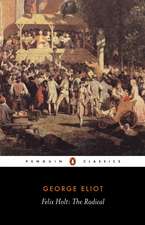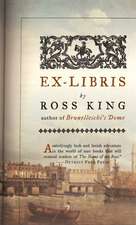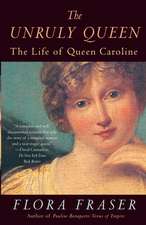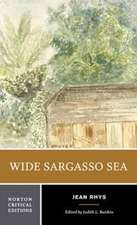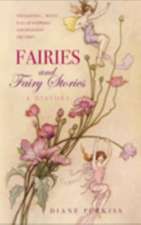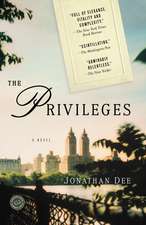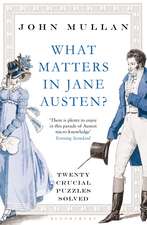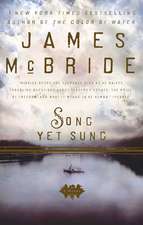The Pickwick Papers: Annotated Edition (Alma Classics Evergreens): Alma Classics Evergreens
Autor Charles Dickensen Limba Engleză Paperback – 23 noi 2022
| Toate formatele și edițiile | Preț | Express |
|---|---|---|
| Paperback (25) | 54.65 lei 10-16 zile | +28.59 lei 7-13 zile |
| Oxford University Press – 8 mai 2008 | 54.65 lei 10-16 zile | +28.59 lei 7-13 zile |
| Alma Books COMMIS – 23 noi 2022 | 55.85 lei 3-5 săpt. | +25.69 lei 7-13 zile |
| Penguin Books – 23 feb 2000 | 67.52 lei 3-5 săpt. | +23.67 lei 7-13 zile |
| CreateSpace Independent Publishing Platform – | 89.20 lei 3-5 săpt. | |
| CREATESPACE – | 110.92 lei 3-5 săpt. | |
| KUPERARD (BRAVO LTD) – 13 noi 2003 | 138.60 lei 3-5 săpt. | |
| CREATESPACE – | 155.93 lei 3-5 săpt. | |
| – | 178.12 lei 3-5 săpt. | |
| – | 196.43 lei 3-5 săpt. | |
| – | 199.50 lei 3-5 săpt. | |
| West Margin Press – 21 oct 2020 | 202.36 lei 3-5 săpt. | |
| CREATESPACE – | 225.47 lei 3-5 săpt. | |
| Les prairies numériques – 26 noi 2020 | 234.16 lei 3-5 săpt. | |
| CREATESPACE – | 236.12 lei 3-5 săpt. | |
| CreateSpace Independent Publishing Platform – | 141.32 lei 6-8 săpt. | |
| CreateSpace Independent Publishing Platform – | 141.73 lei 6-8 săpt. | |
| CreateSpace Independent Publishing Platform – | 148.47 lei 6-8 săpt. | |
| CREATESPACE – | 166.02 lei 6-8 săpt. | |
| Digireads.com – 21 sep 2018 | 181.11 lei 6-8 săpt. | |
| CREATESPACE – | 210.07 lei 6-8 săpt. | |
| Creative Media Partners, LLC – 27 oct 2022 | 218.52 lei 6-8 săpt. | +81.74 lei 7-13 zile |
| Throne Classics – 17 iul 2019 | 225.25 lei 38-44 zile | |
| Prince Classics – 18 iun 2019 | 225.25 lei 38-44 zile | |
| CreateSpace Independent Publishing Platform – 29 noi 2015 | 254.54 lei 6-8 săpt. | |
| Mjp Publishers – 2 mar 2023 | 283.96 lei 6-8 săpt. | |
| Hardback (7) | 69.91 lei 3-5 săpt. | +25.77 lei 7-13 zile |
| Flame Tree Publishing – 15 oct 2019 | 69.91 lei 3-5 săpt. | +25.77 lei 7-13 zile |
| EVERYMAN – 22 oct 1998 | 105.25 lei 26-32 zile | |
| Everyman's Library – 28 feb 1999 | 233.19 lei 3-5 săpt. | +93.51 lei 7-13 zile |
| Mint Editions – 6 oct 2020 | 259.74 lei 3-5 săpt. | |
| Suzeteo Enterprises – 29 mai 2019 | 266.69 lei 6-8 săpt. | |
| Throne Classics – 17 iul 2019 | 271.52 lei 38-44 zile | |
| OUP OXFORD – 12 iun 1986 | 495.80 lei 31-37 zile |
Din seria Alma Classics Evergreens
-
 Preț: 45.33 lei
Preț: 45.33 lei -
 Preț: 45.49 lei
Preț: 45.49 lei -
 Preț: 44.48 lei
Preț: 44.48 lei -
 Preț: 46.29 lei
Preț: 46.29 lei -
 Preț: 51.12 lei
Preț: 51.12 lei -
 Preț: 45.48 lei
Preț: 45.48 lei -
 Preț: 46.33 lei
Preț: 46.33 lei -
 Preț: 46.81 lei
Preț: 46.81 lei -
 Preț: 45.00 lei
Preț: 45.00 lei -
 Preț: 37.85 lei
Preț: 37.85 lei -
 Preț: 46.75 lei
Preț: 46.75 lei -
 Preț: 38.65 lei
Preț: 38.65 lei -
 Preț: 45.27 lei
Preț: 45.27 lei -
 Preț: 64.07 lei
Preț: 64.07 lei -
 Preț: 45.70 lei
Preț: 45.70 lei - 8%
 Preț: 40.59 lei
Preț: 40.59 lei -
 Preț: 44.25 lei
Preț: 44.25 lei -
 Preț: 56.47 lei
Preț: 56.47 lei -
 Preț: 45.36 lei
Preț: 45.36 lei -
 Preț: 53.67 lei
Preț: 53.67 lei -
 Preț: 46.04 lei
Preț: 46.04 lei -
 Preț: 51.75 lei
Preț: 51.75 lei -
 Preț: 51.56 lei
Preț: 51.56 lei -
 Preț: 68.71 lei
Preț: 68.71 lei -
 Preț: 53.10 lei
Preț: 53.10 lei -
 Preț: 59.57 lei
Preț: 59.57 lei
Preț: 55.85 lei
Nou
10.69€ • 11.12$ • 8.94£
Carte disponibilă
Livrare economică 22 februarie-08 martie
Livrare express 08-14 februarie pentru 35.68 lei
Specificații
ISBN-10: 1847498310
Pagini: 784
Dimensiuni: 128 x 198 x 25 mm
Greutate: 0.62 kg
Editura: Alma Books COMMIS
Colecția Alma Classics
Seria Alma Classics Evergreens
Caracteristici
Notă biografică
Recenzii
Descriere
"One of my life's greatest tragedies is to have already read Pickwick Papers- I can't go back and read it for the first time."- Fernando Pessoa "If I must choose only one Dickens then it's his first novel. It's wonderfully funny, kind and good-natured- just like dear Mr Pickwick himself."-Edwina Currie In the picaresque series of sketches in Pickwick Papers, Charles Dickens wrote one of the masterpieces of comic fiction, and presented readers with some of the most colorful and beloved characters of all time. In Dickens' first novel, initially based on a series of illustrations, members of the eponymous club recount their various experiences and encounters as they travel around England. Without the dark themes that dominated so many of his novels, this is a refreshingly lighthearted and unabashedly fun read. Charles Dickens was 24 years old when he was asked to write the text of a series of illustrations for publication of a serial in nineteen installments. At the center of the novel are the members of The Pickwick Club; notably the head of the establishment, Mr. Samuel Pickwick; he has decided, at the outset of the book, to organize a travel society comprising of four members. At the Pickwick Club the members will be required to recount their exploits in the English countryside. As they venture out, the four men become entangled with a dizzying array of mishaps; including failed romance, debtors' prison, judicial and social injustice, and mix-ups of gargantuan heights. Warm-hearted and thoroughly entertaining, this is a wild romp through 19th Century England. With an eye-catching new cover, and professionally typeset manuscript, this edition of The Pickwick Papers is both modern and readable.
Extras
CHAPTER I
The Pickwickians.
The first ray of light which illumines the gloom, and converts into a dazzling brilliancy that obscurity in which the earlier history of the public career of the immortal Pickwick would appear to be involved, is derived from the perusal of the following entry in the Transactions of the Pickwick Club, which the editor of these papers feels the highest pleasure in laying before his readers, as a proof of the careful attention, indefatigable assiduity, and nice discrimination, with which his search among the multifarious documents confided to him has been conducted.
"May 12, 1827. Joseph Smiggers, Esq., P.V.P.M.P.C.,* presiding. The following resolutions unanimously agreed to:-
"That this Association has heard read, with feelings of unmingled satisfaction, and unqualified approval, the paper communicated by Samuel Pickwick, Esq., G.C.M.P.C.,Ý entitled 'Speculations on the Source of the Hampstead Ponds, with some Observations on the Theory of Tittlebats;' and that this Association does hereby return its warmest thanks to the said Samuel Pickwick, Esq., G.C.M.P.C., for the same.
"That while this Association is deeply sensible of the advantages which must accrue to the cause of science from the production to which they have just adverted,-no less than from the unwearied researches of Samuel Pickwick, Esq., G.C.M.P.C., in Hornsey, Highgate, Brixton, and Camberwell,-they cannot but entertain a lively sense of the inestimable benefits which must inevitably result from carrying the speculations of that learned man into a wider field, from extending his travels, and consequently enlarging his sphere of observation, to the advancement of knowledge, and the diffusion of learning.
"That, with the view just mentioned, this Association has taken into its serious consideration a proposal, emanating from the aforesaid Samuel Pickwick, Esq., G.C.M.P.C., and three other Pickwickians hereinafter named, for forming a new branch of United Pickwickians, under the title of The Corresponding Society of the Pickwick Club.
"That the said proposal has received the sanction and approval of this Association.
"That the Corresponding Society of the Pickwick Club is therefore hereby constituted; and that Samuel Pickwick, Esq., G.C.M.P.C., Tracy Tupman, Esq., M.P.C., Augustus Snodgrass, Esq., M.P.C., and Nathaniel Winkle, Esq., M.P.C., are hereby nominated and appointed members of the same; and that they be requested to forward, from time to time, authenticated accounts of their journeys and investigations, of their observations of character and manners, and of the whole of their adventures, together with all tales and papers to which local scenery or associations may give rise, to the Pickwick Club, stationed in London.
"That this Association cordially recognises the principle of every member of the Corresponding Society defraying his own travelling expenses; and that it sees no objection whatever to the members of the said society pursuing their inquiries for any length of time they please, upon the same terms.
"That the members of the aforesaid Corresponding Society be, and are, hereby informed, that their proposal to pay the postage of their letters, and the carriage of their parcels, has been deliberated upon by this Association: that this Association considers such proposal worthy of the great minds from which it emanated, and that it hereby signifies its perfect acquiescence therein."
A casual observer, adds the secretary, to whose notes we are indebted for the following account-a casual observer might possibly have remarked nothing extraordinary in the bald head, and circular spectacles, which were intently turned towards his (the secretary's) face, during the reading of the above resolutions: to those who knew that the gigantic brain of Pickwick was working beneath that forehead, and that the beaming eyes of Pickwick were twinkling behind those glasses, the sight was indeed an interesting one. There sat the man who had traced to their source the mighty ponds of Hampstead, and agitated the scientific world with his Theory of Tittlebats, as calm and unmoved as the deep waters of the one on a frosty day, or as a solitary specimen of the other in the inmost recesses of an earthen jar. And how much more interesting did the spectacle become, when, starting into full life and animation, as a simultaneous call for "Pickwick" burst from his followers, that illustrious man slowly mounted into the Windsor chair, on which he had been previously seated, and addressed the club himself had founded. What a study for an artist did that exciting scene present! The eloquent Pickwick, with one hand gracefully concealed behind his coat tails, and the other waving in air, to assist his glowing declamation; his elevated position revealing those tights and gaiters,4 which, had they clothed an ordinary man, might have passed without observation, but which, when Pickwick clothed them-if we may use the expression-inspired voluntary awe and respect; surrounded by the men who had volunteered to share the perils of his travels, and who were destined to participate in the glories of his discoveries. On his right hand sat Mr. Tracy Tupman-the too susceptible Tupman, who to the wisdom and experience of maturer years superadded the enthusiasm and ardour of a boy, in the most interesting and pardonable of human weaknesses-love. Time and feeding had expanded that once romantic form; the black silk waistcoat had become more and more developed; inch by inch had the gold watch-chain beneath it disappeared from within the range of Tupman's vision; and gradually had the capacious chin encroached upon the borders of the white cravat, but the soul of Tupman had known no change-admiration of the fair sex was still its ruling passion. On the left of his great leader sat the poetic Snodgrass, and near him again the sporting Winkle, the former poetically enveloped in a mysterious blue cloak with a canine-skin collar, and the latter communicating additional lustre to a new green shooting coat, plaid neckerchief, and closely-fitted drabs.
Mr. Pickwick's oration upon this occasion, together with the debate thereon, is entered on the Transactions of the Club. Both bear a strong affinity to the discussions of other celebrated bodies; and, as it is always interesting to trace a resemblance between the proceedings of great men, we transfer the entry to these pages.
"Mr. Pickwick observed (says the Secretary) that fame was dear to the heart of every man. Poetic fame was dear to the heart of his friend Snodgrass; the fame of conquest was equally dear to his friend Tupman; and the desire of earning fame in the sports of the field, the air, and the water, was uppermost in the breast of his friend Winkle. He (Mr. Pickwick) would not deny that he was influenced by human passions, and human feelings (cheers)-possibly by human weaknesses-(loud cries of 'No'); but this he would say, that if ever the fire of self-importance broke out in his bosom, the desire to benefit the human race in preference effectually quenched it. The praise of mankind was his Swing; philanthropy was his insurance office. (Vehement cheering.) He had felt some pride-he acknowledged it freely, and let his enemies make the most of it-he had felt some pride when he presented his Tittlebatian Theory to the world; it might be celebrated or it might not. (A cry of 'It is,' and great cheering.) He would take the assertion of that honourable Pickwickian whose voice he had just heard-it was celebrated; but if the fame of that treatise were to extend to the furthest confines of the known world, the pride with which he should reflect on the authorship of that production would be as nothing compared with the pride with which he looked around him, on this, the proudest moment of his existence. (Cheers.) He was a humble individual. (No, no.) Still he could not but feel that they had selected him for a service of great honour, and of some danger. Travelling was in a troubled state, and the minds of coachmen were unsettled. Let them look abroad, and contemplate the scenes which were enacting around them. Stage coaches were upsetting in all directions, horses were bolting, boats were overturning, and boilers were bursting. (Cheers-a voice 'No.') No! (Cheers.) Let that honourable Pickwickian who cried 'No' so loudly come forward and deny it, if he could. (Cheers.) Who was it that cried 'No?' (Enthusiastic cheering.) Was it some vain and disappointed man-he would not say haberdasher-(loud cheers)-who, jealous of the praise which had been-perhaps undeservedly-bestowed on his (Mr. Pickwick's) researches, and smarting under the censure which had been heaped upon his own feeble attempts at rivalry, now took this vile and calumnious mode of--
"Mr. Blotton (of Aldgate) rose to order. Did the honourable Pickwickian allude to him? (Cries of 'Order,' 'Chair,' "'Yes,' 'No,' 'Go on,' 'Leave off,' &c.)
"Mr. Pickwick would not put up to be put down by clamour. He had alluded to the honourable gentleman. (Great excitement.)
"Mr. Blotton would only say then, that he repelled the hon. gent.'s false and scurrilous accusation, with profound contempt. (Great cheering.) The hon. gent. was a humbug. (Immense confusion, and loud cries of 'Chair' and 'Order.')
"Mr. A. Snodgrass rose to order. He threw himself upon the chair. (Hear.) He wished to know whether this disgraceful contest between two members of that club should be allowed to continue. (Hear, hear.)
"The Chairman was quite sure the hon. Pickwickian would withdraw the expression he had just made use of.
"Mr. Blotton, with all possible respect for the chair, was quite sure he would not.
"The Chairman felt it his imperative duty to demand of the honourable gentleman, whether he had used the expression which had just escaped him in a common sense.
"Mr. Blotton had no hesitation in saying that he had not-he had used the word in its Pickwickian sense. (Hear, hear.) He was bound to acknowledge that, personally, he entertained the highest regard and esteem for the honourable gentleman; he had merely considered him a humbug in a Pickwickian point of view. (Hear, hear.)
"Mr. Pickwick felt much gratified by the fair, candid, and full explanation of his honourable friend. He begged it to be at once understood, that his own observations had been merely intended to bear a Pickwickian construction. (Cheers.)"
Here the entry terminates, as we have no doubt the debate did also, after arriving at such a highly satisfactory and intelligible point. We have no official statement of the facts which the reader will find recorded in the next chapter, but they have been carefully collated from letters and other MS. authorities, so unquestionably genuine as to justify their narration in a connected form.
From the Trade Paperback edition.



